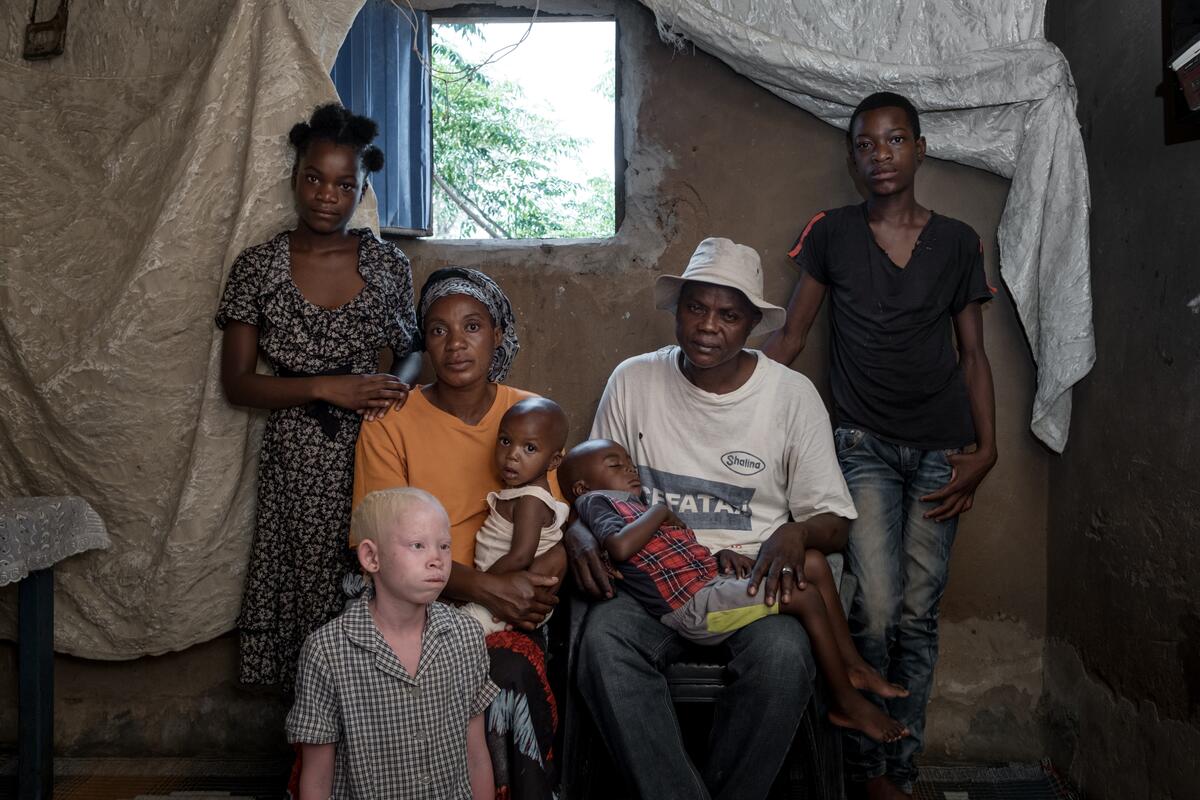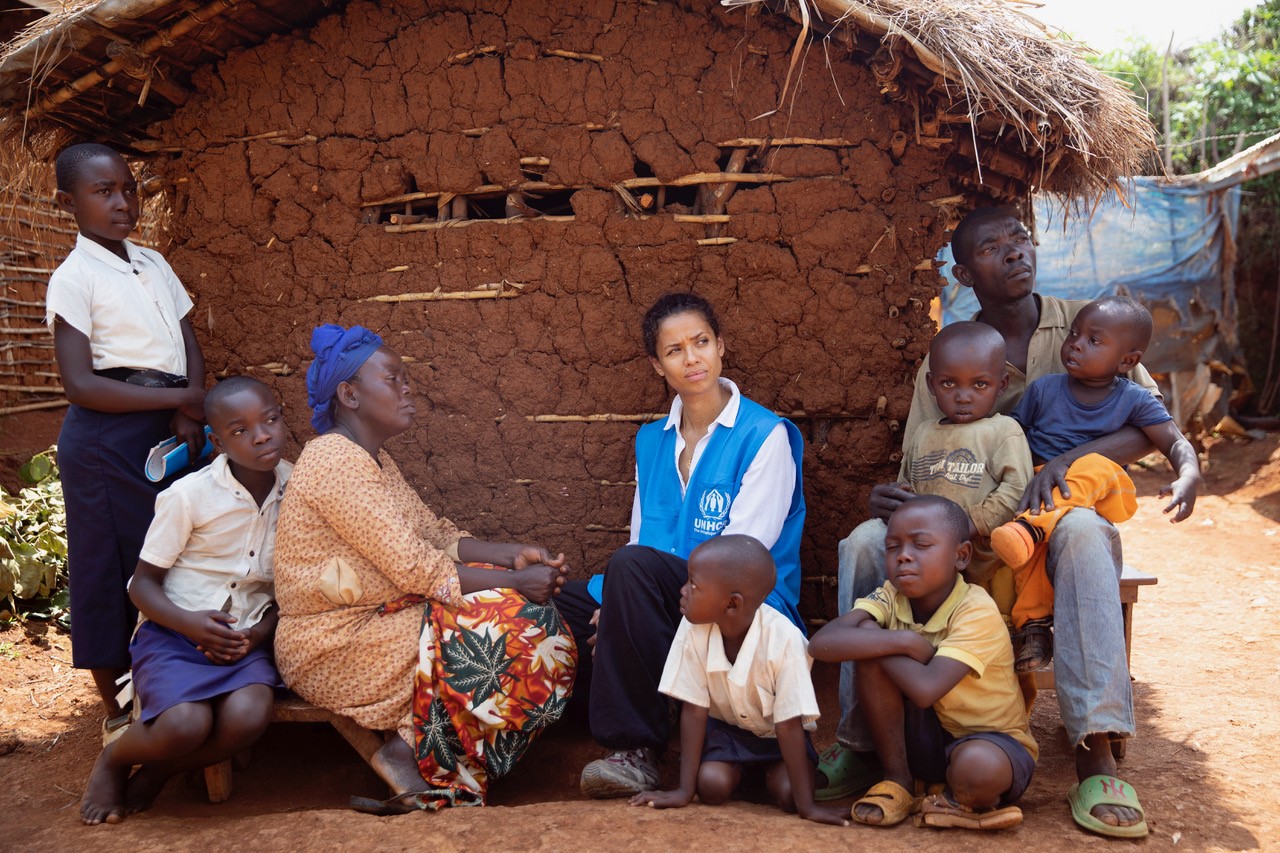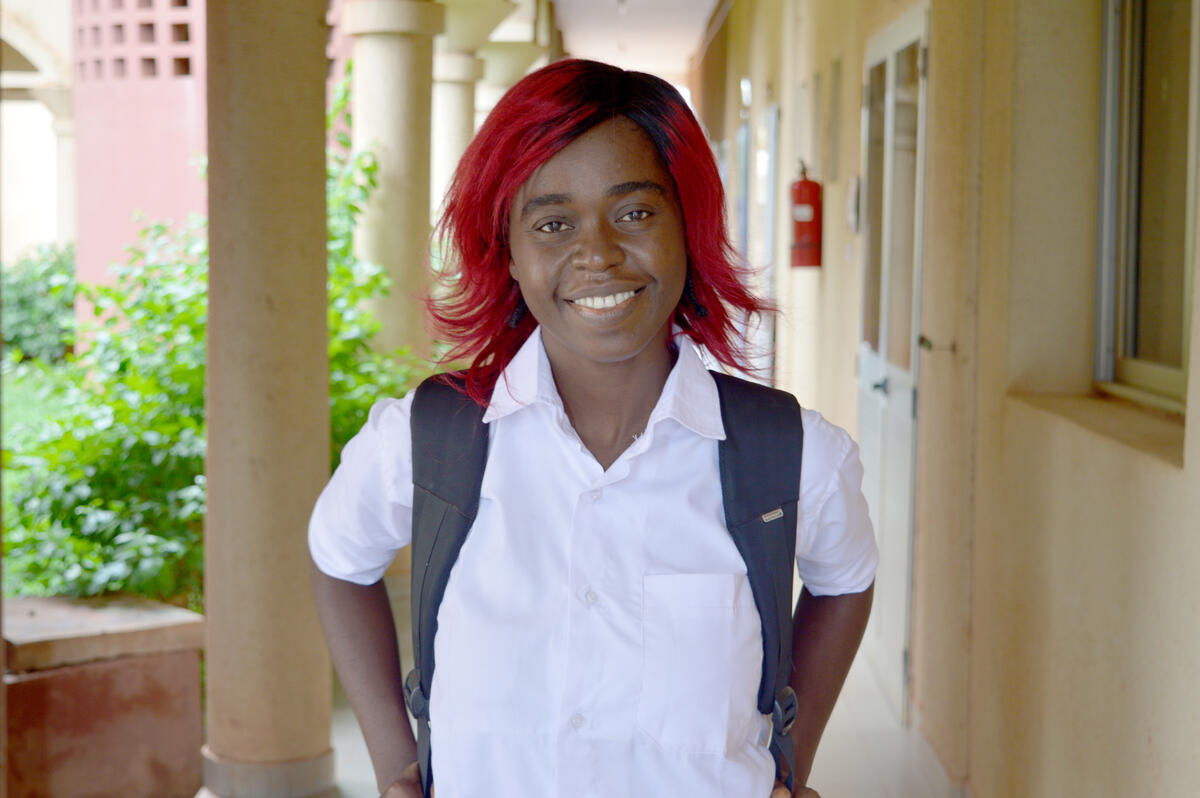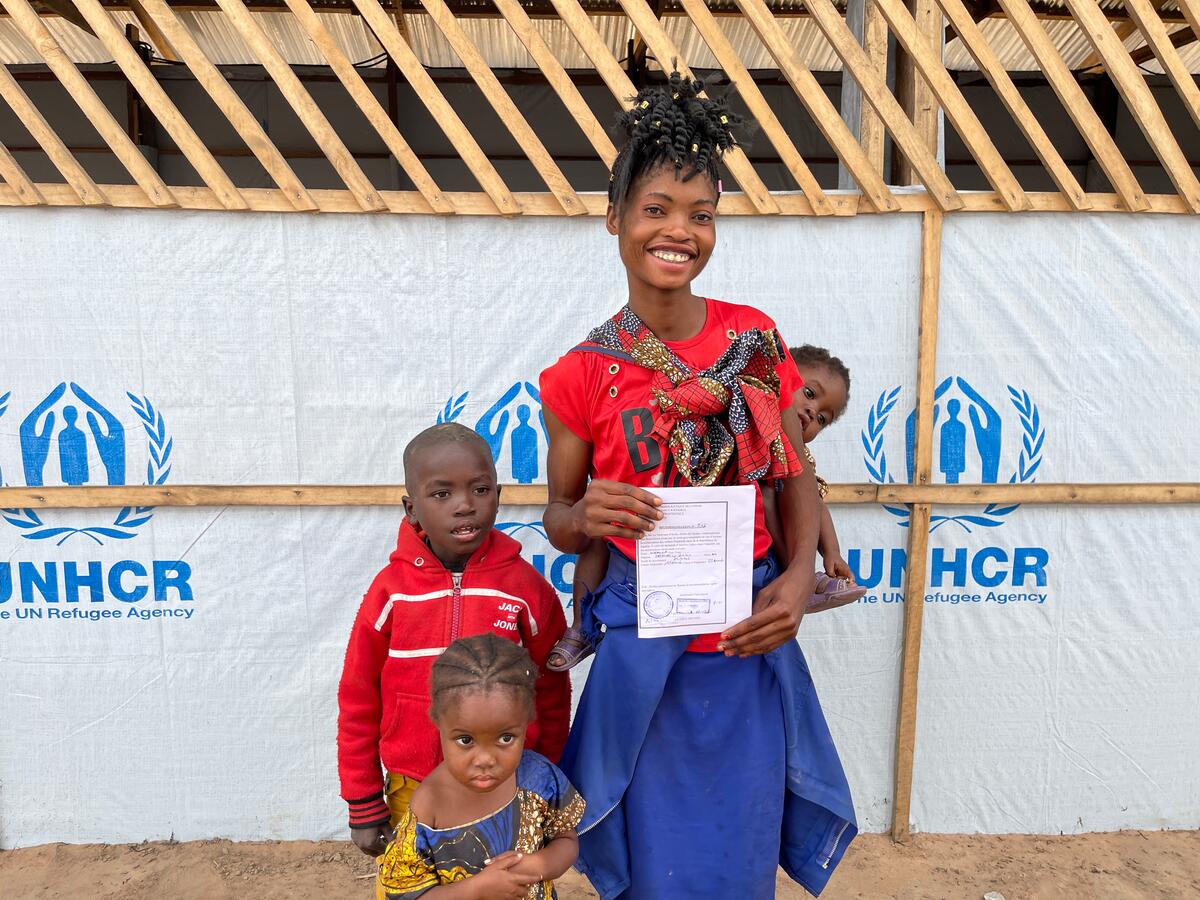Football brings refugees and host community together in Angola

Football brings refugees and host community together in Angola
Djibril Mukandila was a successful football coach in the Democratic Republic of the Congo (DRC) when conflict erupted in his home region of Grand Kasai. The 57-year-old was in charge of regional club AS Vutuka, after nearly a dozen years coaching teams in DRC and Cameroon, when he was forced to flee in 2017.
Political and ethnic tension in Kasai escalated quickly, triggering a crisis that forced the internal displacement of 1.4 million people: “I saw the horrible consequences of war,” Djibril says. He and his family were among 35,000 who escaped to Angola, where he now lives with his wife and five children in the Lôvua settlement, in the northern Lunda Norte province.
Life as a refugee was not easy, and Djibril’s feeling of professional frustration made it harder still. “As a football coach, I felt that my work would never be accepted here,” he says. But he was determined to find a way to use his skills and, soon after arriving in Angola, began informally coaching young Congolese refugees also fleeing the violence in Kasai.
As a father and a coach, Djibril understood the important role sports can play in promoting social cohesion and personal well-being, and while the players may not have been the professionals Djibril was used to working with, he could see how much they benefitted, both physically and mentally.
“Sports significantly helps young refugees in many ways,” says UNHCR Angola Representative, Vito Trani. “It not only reinforces peaceful coexistence between refugees and Angolan youth but enhances their capacity to better cope with their past while looking forward to the future.”
Djibril soon formalized his coaching by opening a football school in Lôvua where his dedication to the sport helps young refugee players forget the violence they have escaped, and imagine a different future.
“Sometimes I feel sad because my father and three of my brothers died,” says 16-year-old Mananga Mandundu, recalling his experience of the conflict in DRC. “Football helps me overcome the sadness I feel. When I play, all of it leaves my head and I know that one day, my dreams of playing professionally will come true.”
“When I play football, I don’t think about how much I miss my friends,” says Adore Oyombo, 24, who also ran away from the horrors unfolding in Kasai. “Playing football helps me not to think about the past anymore.” Inspired by Djibril’s coaching, Adore also dreams of a footballing career.
"I realized they are just like me."
At first the refugees formed their own team and, in a tournament organized by UNHCR, the UN Refugee Agency, beat a local team of Angolans.
“Both our teams reached the finals but unfortunately the local team lost,” says Miguel Baptista, a young Angolan civil servant who played in the match. Far from being upset at their loss, Miguel says the experience changed his perspective of refugees. “When I first heard they were coming to live here, I thought they would be strange or bad people. But when I met them, I realized they are just like me.”
With Djibril’s encouragement, the refugees and local footballers soon went from being rivals to playing together on the same team. “The idea was to promote peaceful coexistence and for us to be together,” says Djibril, who approached Miguel to help.
“Djibril asked me to become the assistant coach and to suggest players,” Miguel says. In November, this new team comprising refugees and Angolans debuted in the provincial championship as the ‘Integrated Football Club of Lôvua’ and although they lost their first match, they made a big impression on the audience.
Fernando Matuca, an Angolan football player and fan, was among the spectators at that first official match. To his surprise, he found himself rooting for the mixed team and afterwards he approached the coaches asking to try out for the team. “They received me very well and they taught me to play better,” says Fernando, crediting Djibril with being “a good teacher”.
The team spend a lot of time together, practicing every day in the Lôvua settlement, between their jobs and studies. Djibril leads by example, working as a camp coordination mobiliser for World Vision, a UNHCR partner, but still finding time to put his footballing knowledge to good use for the refugees and the host community. “I worked hard,” he says proudly. “Now everyone appreciates my work.”
At weekends, they travel regularly to compete in matches, often with a small group of supporters in tow, and are a powerful example of how people can find common ground and break down the barriers that often separate them.
Thanks to Djibril’s drive and experience, that future is looking brighter already. “Our dream for the team is to see some of the players playing professionally, in football clubs in other parts of the world,” says Chrispus Tebid, Head of UNHCR Field Office in the Lunda Norte Province.
It is a dream Djibril shares, hoping his new team of refugees and their neighbours might reach a continental tournament one day, while for the players, too, football has proven much more than just a sport. “We were friends while we were playing against each other,” says Mananga, the young Congolese refugee. “Now we are family.”









